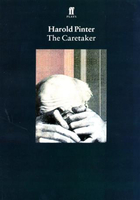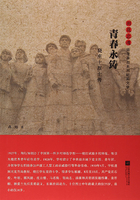WORD SPREADS
YOUNG BEETHOVEN AS KITCHEN SCULLION
LUDWIG VAN BEETHOVEN THE COMPOSER HAD come of age. More than that, he was an all-round musician, and was recognised as such. Assistant court organist to Neefe, he also played viola in the court orchestra and he was the composer of several works. The complexities of the cantatas might have been regarded as unplayable, but for precisely that reason were judged to be highly impressive. The commission alone gave him an unrivalled reputation.
Given these factors, his decision regarding the next composition seems all the more surprising. The idea was Count Waldstein's. As a leading figure in Bonn, he was deputed to arrange a celebratory occasion to mark the end of the operatic season and the beginning of the annual Carnival in early March 1791. He decided to organise a 'ballet' in one of the grander rooms of the Town Hall, to be preceded by a procession of the town's nobility dressed in traditional German costume.
A ballet in the late eighteenth century meant in effect a series of tableaux, men (it was rare for women to take part) assuming dramatic poses on stage. For this, music was required. Waldstein asked Beethoven if he would compose it. We do not know if Beethoven received any money. It is more than likely that he did, and that it was passed to him clandestinely, for Waldstein made another request: that the music should be published under his name. And indeed it was: Musik zu einem Ritterballet (Music for a Ballet of the Knights) by Count Waldstein.
The event duly took place, and was a magnificent spectacle. Noblemen in medieval German costume, accompanied by their ladies-who, as one observer subtly put it, lost none of their charms by donning costumes of antiquity-processed across the square to the Town Hall, where in the Ridotto room more men in appropriate medieval costume took up poses from German folk legends.
We can get an idea of what this involved from the titles to the pieces composed by Beethoven: March, German Song, Hunting Song, Love Song, War Dance, Drinking Song, German Song, Coda. It must have been a picturesque spectacle, depicting the sort of Germanic legends a certain Richard Wagner would get hold of half a century or more later.
The music was acclaimed, later published, and attributed to Waldstein, and it stayed that way for the best part of a century, until musicologists established beyond doubt that it was composed by the nineteen-year-old Beethoven. In fact we should not be too shocked that the music was appropriated by Waldstein. Such behaviour was not all that uncommon in eighteenth-century Europe, the most notorious example being the composition, at about this very time, of the Requiem by Mozart, in the knowledge that it was to be presented as having been composed by Count Walsegg, the nobleman who commissioned it as a memorial to his wife.
The Ritterballet, to my knowledge, is never performed today, and is regarded as having no real significance, particularly when measured against the two cantatas that preceded it. But it does hold one distinction: it is the only composition for orchestra by Beethoven that was actually performed while he was living in Bonn.
There is a delightful anecdote about Beethoven that dates from around this time. It shows him in a very different light from that usually described by his contemporaries, and I cannot help believing (though there is no proof) that his unusual congeniality relates to a remarkable occurrence in December 1790, and what followed it.
The event itself happened many miles away, and did not concern Beethoven in any direct way. But indirectly it was to have the most profound musical influence on him imaginable. In September 1790 Prince Nikolaus Esterházy, great patron of the arts, died at his sumptuous palace at Esterháza. This led to freedom from a rigorous regime of musical servitude to which his composer-in-residence had been subjected for almost thirty years.
The composer was a certain Joseph Haydn, and he relished his sudden liberty. His name was well known in several European countries, and a friend of his, Johann Peter Salomon, who was a concert manager based in London, persuaded him to come to England. The two men could have chosen any one of half a dozen routes, but Salomon had been born in Bonn and had family there, and so they decided to stop off in Bonn.
This was another amazing stroke of good fortune for Bonn's young musical wunderkind, Ludwig van Beethoven. Haydn and his companion arrived in Bonn on Christmas Day 1790, and were scooped up by the musical establishment. Haydn gave his own account of what happened to an interviewer some years later. This is usually compressed into a few sentences by Beethoven biographers, but it offers such delightful insights into Haydn's character, as well as the behaviour of Bonn's senior musicians-including, without doubt, Beethoven-that it is worth recounting in some detail.
On Sunday, 26 December, Haydn and Salomon were invited to attend Mass in the court chapel. No sooner had they taken their seats than the first chords sounded, and Haydn immediately recognised one of his own works. He professed himself flattered but embarrassed. The Mass over, the two men were invited into the oratory, where they were surprised to find none other than the Elector himself, Max Franz, along with a group of Bonn's most prominent musicians.
The Elector took Haydn by the hand and presented him to the assembled company, with the words: 'Gentlemen, allow me to introduce you to the Haydn you all revere so highly.' The musicians gathered round the esteemed composer, who clearly enjoyed the adulation, but retained his natural modesty. This turned to genuine embarrassment when the Elector invited him to dinner.
The problem was Haydn and Salomon had not expected this, and had arranged for a small dinner to be served to them in their lodgings. They were committed, and it was too late to cancel. Haydn, by his own account, apologised profusely, explaining the problem, and the Elector accepted with good grace. After a suitable time, Haydn and Salomon returned to their lodgings. On entering the dining room, they discovered the small dinner had become a banquet, and there were around a dozen court musicians present. The Elector had organised a surprise party.
If Haydn, now nearly fifty-nine years of age, was feeling any weariness, he did not say, and it seems a convivial evening ensued. Was Beethoven in the company in the chapel oratory, and subsequently at Haydn's lodgings? We do not know. But I believe it is beyond doubt. He was not only Bonn's finest pianist, he was also far and away its most prolific composer, having written piano works, chamber works, ballet music, songs, not to mention two substantial cantatas commissioned by the Lesegesellschaft. To host a composer of the standing of Joseph Haydn in the small town of Bonn without introducing him to a homegrown young composer with an already outstanding reputation is, frankly, unthinkable.
I shall now shamelessly indulge in speculation, but in a way that is borne out a year and a half later when Beethoven's future musical course is decided in the most dramatic way. At the dinner, with musical conversation flowing easily and good food and wine being enjoyed, Haydn tells the company some home truths about being in the employ of Prince Esterházy, how he and his musicians were often treated no better than servants, made to wear uniforms, and eat in the kitchens with the staff. In return the musicians tell him about musical life in Bonn, and-singling out Beethoven-regale Haydn with tales of the two cantatas that were impossible to play.
Beethoven, probably with some pique, retaliates that the pieces were by no means impossible, all that was lacking was musicians sufficiently proficient to play them. Haydn then says, 'Look, it is a bit late now, and I have to leave early tomorrow, but I'll tell you what I'll do. On my return journey I'll make sure I come via Bonn, and I would very much like to look at the cantatas, see the manuscripts. Would that be all right?'
I confess the conversation and that last quote are drawn from my imagination, but in July 1792 that is exactly what happened, and it led to a life-changing decision for Beethoven. But that lies ahead.
To turn now to the anecdote that finds Beethoven in a particularly benign and cooperative mood. It was recounted nearly fifty years after the event, and the date is given as the summer of either 1790 or 1791. In the summer of 1790 Beethoven was at the height of his troubles over the cantatas. The musicians were refusing to perform the first, and he was about to embark on the second, which would meet a similar fate. In the summer of 1791, though, he was basking in the afterglow of having met the great Haydn, who had expressed a personal interest in his compositions. So let us place it at the later date.
Beethoven and a companion-likely to be either Wegeler or one of the Breuning sons-were walking in Godesberger Brunnen, a small village just outside Bonn renowned for its natural springs. They approached an older man-the source of the anecdote-and fell into conversation with him, during which he happened to remark that the church in the monastery at Marienforst, in the woods behind Godesberg, had been repaired and renovated, which was also true of the church organ, which was either entirely new or greatly improved. Beethoven's friend suggested that they go to the church, and that Beethoven should try out the new organ. The older man joined in, and soon they were urging him to play.
This is something Beethoven was by now used to. So virtuosic was he at the keyboard that he was forever being asked to demonstrate his skills. He quickly came to hate this, and in later years in Vienna, where the demands intensified as his fame spread, he would point blank refuse. On one occasion a titled lady went down on her knees in front of him in one of the most aristocratic salons in the city, and still he refused.
And on this occasion in Godesberg? 'His great good nature led him to grant our wish,' recalls the older man. The group walked to the church, but found it locked. Undeterred, they sought out the prior, who was very obliging and had the church unlocked. Beethoven went straight to the organ, tried it out, then asked his companions to give him a theme. This they did, and Beethoven improvised on it. Then another theme, and another. Always Beethoven improvised, variations flowing out of him. His playing was such that 'it moved us profoundly', recalled the older man.
Then he adds-and this is what gives the whole story an extra layer of credibility, even poignancy-workmen who were clearing up the building debris outside the church laid down their tools and came into the church to listen 'with obvious pleasure'. That more than anything, I am convinced, is what will have persuaded Beethoven to play on and on. Here was an audience of genuine music-lovers who appreciated what he was doing, not a collection of aristocrats eager to be seen to be supporting the arts.
So why do I bother recounting this anecdote, when it first appeared in print almost two centuries ago, and rarely finds its way into modern biographies? Because this is the real Beethoven, not the permanently choleric and uncooperative Beethoven of myth.
Also rarely mentioned, or given no more than a passing reference, is a trip up the Rhine that Beethoven and around twenty-five members of the court orchestra took in the late summer of 1791. Rarely mentioned because it yielded nothing in terms of composition, but with regard to Beethoven's reputation as keyboard virtuoso it was to prove very important indeed. Also, as with the Godesberg anecdote, it shines a light into the character of the young man who was to go on to become such a titan in the world of music. So, with no apologies, I intend to recount it in detail.
The trip, which Beethoven was to remember fondly for the rest of his life as 'a fruitful source of loveliest visions', was occasioned by the fact that the Elector, Maximilian Franz, as Grand Master of the Teutonic Order, was due to attend a gathering of the Order's leadership in Bad Mergentheim, which was the official residence of the Grand Master. For his and his fellow Knights' amusement, he decided that the court orchestra should join him there for a full month. Beethoven was among those selected to go.
The spa town of Bad Mergentheim lies around two hundred miles southeast of Bonn, and by far the most comfortable and practical way to make the journey two centuries ago was by boat, first up the Rhine, then along its tributary the Main, and finally the smaller Tauber. It is apparent from the few details we know that the Bonn court orchestra was under no compulsion to reach Mergentheim in the shortest time possible, probably because the boat could make only slow progress sailing against the direction of the fast-flowing water.
There is no river in Europe richer in myths and legends than the Rhine, and the portion of it that the orchestra was about to travel on, the Middle Rhine from Bonn to Mainz, with its medieval castles standing guard over villages clustered on the waterfront, is the richest in its 760-mile length. [1] Anyone born and brought up on the banks of the Rhine, or close to it, learns of the legends from childhood, and passes them on to their children. We know from the Fischer memoir that there were two telescopes in the attic of the Fischer house, a small one and a large one, and that with them one could see twenty miles up river, to the hills of the Siebengebirge (Seven Mountains) stretching away from the river on the far bank. It was Ludwig's delight to go to the attic and gaze through the telescopes, Fischer recalls, because the Beethovens had a love for the Rhine.
It is therefore beyond doubt that Ludwig learned of the legends as a child. He would have heard of how the hills of the Siebengebirge were created by dwarves digging lakes and throwing the earth over their shoulders. And he would certainly have been familiar with the legend attached to the largest of the hills, the massive rock that stood-and stands-on the east bank of the Rhine about eight miles up river, and which he would have been able to see clearly through the telescope from the attic window.
The Drachenfels (Dragon Rock) is named for the fearsome dragon that inhabited a cave halfway up the rock, whose lust for human flesh was such that it could be sated only by the annual sacrifice of a virgin. So the heathen people of the right bank of the Rhine each year crossed the river to the Christian left bank to kidnap the intended sacrifice. One day into their midst on a snow-white charger there rode a young Teutonic hero by the name of Siegfried. Fortuitously he happened to arrive on the day the heathen warriors returned to their own left bank with a bound and trembling girl intended as the annual human sacrifice for the dragon.
When challenged by Siegfried, the heathens explained that without such a sacrifice the dragon would come down into their town and devour their children. Siegfried realised that only the death of the dragon would bring an end to this awful state of affairs. Clutching his invincible sword he climbed the rock, to be met by a startled dragon who had been expecting his yearly sacrifice. It reared up at the sight of Siegfried, blowing first smoke then two jets of fire from its nostrils. Siegfried struck its neck with his sword, but it merely glanced off the scaly armour-plating. But Siegfried saw that under the dragon's neck was a soft patch of skin. He swiftly gathered up as much dry brushwood as he could hold, and when the dragon again breathed fire at him, he thrust the bundle of brushwood into the dragon's jaws. The dry brittle wood immediately burst into flames. Roaring with pain and anger, the dragon lifted its head to shake the wood free. Its soft neck was exposed for an instant, and Siegfried rammed the sword home. The dragon fell to the ground, its blood draining fatally into the soil. The danger to the people was at last over. [2]
The yacht carrying the court musicians would have glided past the Drachenfels within an hour, or less, of setting off from Bonn, and I can picture them clustering onto the deck to gaze in awe at the Drachenfels, and its clearly visible cave, as the bass singer Joseph Lux-elected 'king' for the voyage-recounted the legend in tremulous tones. Is it too fanciful to imagine King Lux gazing with trepidation at the sopranos and mezzo-sopranos, urging the men to protect and shield them, as the yacht sailed past the rock?
Probably not, since before leaving Bonn the musicians had themselves held the joyful ritual of electing Lux 'Great King of the Journey'. He, in turn, then handed out duties to musicians whom he appointed senior members of his regal court, the tasks becoming more menial as he progressed to the junior ranks.
And who was youngest, and therefore most junior, of all? None other than Ludwig van Beethoven, who along with the slightly older cellist Bernhard Romberg, was appointed kitchen scullion. To me, the thought of the twenty-year-old Beethoven being given the lowliest of kitchen duties is one of the most enchanting images from his Bonn years.
The boat, with 'mast and sail, flat deck with railing, comfortable cabins with windows and furniture, generally in the style of a Dutch yacht', [3] made slow progress against the current, but it would not have been long before it approached another massive rock, even richer in legend than the Drachenfels, which towers several hundred feet above the river: the Loreley.
It is true that the legend of the maiden who inhabits the rock and lures sailors to their deaths with the sweetness of her song achieved global fame following the publication of a poem a decade or so after the Bonn musicians' boat trip, and its musical setting some years after that. But legends have swirled around the Loreley since medieval times, occasioned by the fact that at this point the Rhine bends and narrows alarmingly. [4]
The current flows fast, and lethal rocks-the Sieben Jungfrauen (Seven Virgins)-lie just below the surface, creating dangerous whirlpools. Many a vessel has come to grief here. [5] As with the Drachenfels story there are several versions of the legend, but the best-known one certain to have been familiar to the Bonn musicians recounts how the lovely maiden Loreley was engaged to be married to a sailor, but he deserted her. In her grief she threw herself from the top of the rock into the swirling waters below, and in revenge lures sailors with her beautiful singing, which turns to mocking laughter as their vessel breaks up on the rocks and they disappear into the depths. [6]
As with the Drachenfels, it is certain the Bonn musicians would have gathered on deck as their yacht passed the massive rock. It is said that if conditions are right, a sevenfold echo can be heard on the southern slope of the rock. I imagine King Lux commanding silence so the musicians could listen out for it. Was it sweet singing, or scornful laughter?
In Beethoven's day, the stretch of river to the south of the Loreley became even more treacherous, narrowing to little more than a gorge, with vicious cross-currents and lethal underwater rocks. Approaching Bingen, where the Rhine takes a sharp turn east, it reached its narrowest point and was unnavigable. [7]
For this reason the yacht docked on the east side of the river and the musicians had to leave it, climb up to the thickly wooded hill above the bend in the river, and join it again where it widens on the stretch towards Mainz. On the heights above the small town of Rüdesheim King Lux summoned his court, and there conferred promotions on those who had earned them. [8]
Step forward kitchen scullion Ludwig van Beethoven who, in recognition of his devotion to duty, was promoted to less menial tasks. [9] He must have performed extremely well, because King Lux presented him with a diploma confirming his promotion. Several threads cut from the yacht's rigging were attached to the document, and at the other end was a huge seal of pitch attached to the lid of a small box. The document folded neatly into the box. Beethoven treasured this, and kept it with him for many years after he moved to Vienna.
At Mainz, where the Rhine turns south, the musicians boarded another boat to take them east along the Main. An easy day's sailing-the Main was less turbulent and fast flowing than the Rhine-took them to Aschaffenburg, where the Elector of Mainz had his summer palace. Since their own Elector had put them under no pressure to reach Mergentheim, it was decided to make a stop in Aschaffenburg, and introduce Beethoven to one of Germany's most renowned and respected piano virtuosos, the Abbé Sterkel, who resided at the palace.
Two senior members of the orchestra took Beethoven, along with former kitchen scullion colleague Romberg, to meet the great musician, and the ensuing encounter has entered legend. The palace was an imposing four-sided structure encompassing a courtyard, standing on the banks of the Main, and it is likely that the Bonners-albeit familiar with palaces-were impressed. [10] It is also probable that Sterkel played on his great reputation, no doubt dropping into the conversation how pleasant it was to be resident at the palace itself, as befits a renowned musician.
After some polite conversation during which the visitors would surely have flattered Sterkel, they urged him to demonstrate his powers at the keyboard, and the Abbé it appears took little persuading. We do not know what he played, but we do know that Beethoven approached the piano and stood transfixed. He quite simply had never heard playing like it. Relating the story later, one of those present said that brilliant young virtuoso though Beethoven was, his playing was 'rude and hard', whereas Sterkel had a 'refined and cultivated' style, and his playing was 'in the highest degree light, graceful and pleasing'.
As the sole pianist in Bonn with virtuosic talent, it was the first time Beethoven had heard another pianist who even came close to his skills, and Sterkel's technique introduced him to a new world of grace and delicacy. He was seriously impressed, more than he had ever been before.
Sterkel finished his display to universal praise, and all eyes turned towards Beethoven-including those of Sterkel. They urged him to demonstrate his skills, but Beethoven demurred, muttering he would rather not under the circumstances. Sterkel seized the moment.
'Maybe the young gentleman from Bonn does not quite measure up to the reputation he seems to have established?'
It was, as Sterkel might well have reasoned it would be, a red rag to a bull. Seeing Beethoven's discomfort, he pressed harder. 'We have seen your latest publication, and I confess to being impressed with the complexity of the writing and the skills you require in the performer. In fact, dare I suggest, you demand more skills in the performer than maybe you yourself possess? I have an idea. Why do you not play the piece now, and put our suspicions to rest?'
Earlier in that same year Beethoven had composed a substantial piece, a set of no fewer than twenty-four variations on a theme by one Vincenzo Righini, a colleague of Sterkel in the service of the Elector of Mainz. For that reason the published work-Beethoven's first for seven years-had quickly found its way to Aschaffenburg.
Beethoven, clearly stung, his honour impugned and his ire aroused, said he would play. 'Give me the score.' Sterkel rifled through the sheet music on the piano, inside the stool, on nearby surfaces, but failed to find it. Undeterred, Beethoven began to play.
He played variation after variation, including some of the most technically demanding, from memory. Then, in the midst of playing, announcing he could not recall the remaining variations, he instantly improvised entirely new ones, of a complexity equal to the most difficult of those he had already played. To round things off, he imitated Sterkel's style of playing, exaggerating its lightness and refinement, making it appear 'almost ladylike', no doubt drawing discreet chuckles from those present.
We are not told of Sterkel's reaction, but this would not be the last time that Beethoven, his skills at the keyboard thrown into doubt, would embarrass his accuser with an unparalleled display of virtuosity.
As well as an illuminating tale regarding how easily Beethoven could be goaded into performing when his skills were impugned, this encounter in Aschaffenburg is important for another reason too. It provides evidence that, through publication, knowledge of his compositional skills had spread well beyond his hometown of Bonn. Now his virtuosity was certain to achieve a similar fame.
On arrival in Bad Mergentheim, the musicians from Bonn turned their minds to musical duties. On the orders of the Elector they were given quarters in the complex of buildings that housed the Teutonic Order, and no doubt appreciated the comfort and convenience this afforded. They had a busy schedule. There were performances in theatres, ornate halls and churches, on every day of the week. There were balls, concerts, operettas and plays. Added to this were lavish receptions and banquets, with musicians on hand to entertain guests. The Teutonic Knights-Count Waldstein attended for a period-were dressed in medieval finery of white cloaks.
On the Elector's name day he presented his Bonn musicians with a bag containing one thousand ducats. Beethoven's share amounted to around forty guilders.
We would know little more about the stay in Mergentheim, were it not for the diligence of a well-known composer of the time by the name of Karl Ludwig Junker. He visited Mergentheim and was warmly received by the Bonners. It says something of his perspicacity as music critic that he regarded the orchestra to be sufficiently accomplished to merit a lengthy report, which he published in a musical journal.
He praises the orchestra's 'surpassing excellence' in music of the utmost difficulty. He writes that the musicians were resplendent in red uniforms trimmed with gold. Beethoven played in the viola section, and it is a beguiling thought to imagine the young musician, so notoriously careless about his appearance in later years, sitting in resplendent uniform with his fellow players.
So far, so interesting, but little more than that. Indeed the name of Karl Ludwig Junker would be well and truly consigned to oblivion were it not for the paragraph that he wrote next. For reasons we do not know, he watched Beethoven improvise on the piano in a private room with no audience. More than that, Beethoven asked him for a theme, so that he could improvise on it. This is something Beethoven was consistently asked to do throughout his life, and (as I have noted earlier) he nearly always refused. On this occasion he obliged. Not only that, but he made an impression on Junker that led to a description possibly unique in all the thousands of words written by men and women who knew him. It is so extraordinary, it is worth quoting at length.
I heard also one of the greatest of pianists-the dear, good Bethofen [sic]… True he did not perform in public, probably the instrument here was not to his liking… But what was infinitely preferable to me was that I heard him extemporise in private. Yes, I was even invited to propose a theme for him to vary… The greatness of this amiable, light-hearted man, as a virtuoso, may in my opinion be safely estimated from his almost inexhaustible wealth of ideas, the altogether characteristic style of expression in his playing, and the great execution which he displays. I know, therefore, of not one thing that he lacks that is necessary to the greatness of the artist… Bethofen, in addition to his execution, has greater clarity and weight of ideas than Vogler, [11] and more expression-in short his playing goes straight to the heart. Even the members of this remarkable orchestra are, without exception, his admirers, and are all ears when he plays. Yet he is exceedingly modest and free from all pretension. Had I agreed, as my friend Bethofen implored me, to stay another day in Mergentheim, I have no doubt he would have played to me for hours, and the day… would have been transformed into a day of the highest bliss.
This is on several levels a quite remarkable commentary. For a start here is a professional music-writer in his forties openly stating that Beethoven is a better keyboard player than the best he knows. Even if we might have expected that, it comes as a genuine shock-given what we know of Beethoven's notoriously unpredictable temperament-to learn that he is so popular with his musical colleagues. There is not one, according to Junker, who does not admire him and listen attentively when he plays. We have to deduce from this they liked him too. It comes shining through Junker's prose. Finally, what do we make of the words 'he is exceedingly modest and free from all pretension'? Well, the earliest and most authoritative of all Beethoven biographies, written by a man who interviewed many people who had known Beethoven, describes these words as 'utterly inexplicable'! [12]
Certainly Junker was caught up in the moment. [13] But if Beethoven actually tried to persuade him to stay so he could play some more for him, the two men-a generation apart in age-must have got on exceedingly well. We cannot simply dismiss Junker's words as those of a sycophant. He observed the Bonn orchestra performing, witnessed their relationships, and was given a private recital by Beethoven.
My reading of this is that Beethoven, twenty years of age, was away from Bonn, away from the tensions of family, away from the confines of court, away from anyone-and any circumstance-that was not musical. He was in the company of musicians, making music. Nothing else. I do not find it in the least surprising that here, in Mergentheim, for the first time in his life we see Beethoven, the innate musician. [14]
One can almost feel his sense of despair when the time came to return to Bonn in late October 1791.
At one o'clock in the morning on 5 December 1791, an event occurred that went largely unnoticed in Vienna, that caused much sadness in musical circles in Bonn, that would have caused Beethoven considerable grief, and that is still being mourned today. Wolfgang Amadeus Mozart died at the age of thirty-five. It is not an exaggeration to say that Beethoven, who turned twenty-one less than two weeks later, was soon being talked of as Mozart's natural successor. As performer his virtuosity was unquestioned and unparalleled. [15] As composer he now had a substantial number of works, in a variety of genres, to his name.
One man recognised that more than any other. He was in London when the sad news reached him, but he kept his promise to pass through Bonn on his return to Vienna. In July 1792 Beethoven once again met Joseph Haydn, now Europe's unquestioned preeminent musician. Haydn was now sixty years of age, and a good enough musician to recognise that he belonged to an older generation and that new blood was needed. More than that, he was prepared to do something about it.
A breakfast meeting was arranged between Haydn and members of the court orchestra at Bad Godesberg, close to Bonn. Beethoven was present, and no doubt remembering Haydn's suggestion at their last meeting, had the manuscript of his Cantata on the Death of Emperor Joseph II with him. Haydn asked to see it. He studied several pages, finally confessing himself very impressed. He urged Beethoven to continue his studies.
The meeting is recounted by Wegeler, who frustratingly gives us no further detail. However, by the time Haydn left Bonn shortly after, there was a clear commitment that if Beethoven could find his way to Vienna, he, Haydn, would give him lessons. We do not know how this was viewed by the people around Beethoven, Count Waldstein, or Christian Neefe, or most importantly the Elector, who would not only have to give Beethoven permission to take leave of absence, but also subsidise the trip. It was summer, certainly, and court duties were light, but come autumn the new opera and theatre season would have to be prepared and then got under way. There was not much Beethoven could do in the few weeks before then. But if it was to be a longer stay, how likely was it that the Elector would grant leave of absence to a young man who had by now made himself such an indispensable member of musical life at court?
Not for the first time, extraneous events worked in Beethoven's favour, though he must have been the only resident of Bonn for whom this was true. In October 1792 the French Revolutionary Army invaded German territory and marched towards the Rhine. On the 22nd they took Mainz and headed north. The towns and cities of the lower Rhine were at their mercy. Those who could fled. It was decided that the Elector and his family should leave Bonn.
In the chaos of evacuation, the question of whether or not Beethoven should be allowed to go to Vienna paled somewhat. We do not know exactly what happened, but almost certainly Count Waldstein seized the moment to secure the Elector's agreement for Beethoven to go to Vienna, possibly for six months, maybe for a year.
Beethoven did not need telling twice. He immediately began making preparations. We do not know how he told his father, or what his father's reaction was. Probably he presented it as a fait accompli, in the knowledge that his two brothers, now in their mid-and late teens, would take over responsibility.
Before leaving, Beethoven made the rather charming decision-or maybe it was made for him-to fill an autograph book with messages from close friends. This book has survived, and is rather more surprising for what it does not contain than for what it does.
Only fourteen friends have signed it, none of them musical colleagues, many with names that do not feature in any of the literature. Christian Neefe did not sign it. It seems to give the lie to Junker's assessment of Beethoven's popularity among his fellow musicians. On the other hand, it is always possible that he had another book for musicians, or that shyness prevented him from approaching everyone he would have liked to.
One notable omission is Stephan von Breuning, one of Helene von Breuning's sons to whom he had given piano lessons. With Stephan the young Beethoven had formed an even closer friendship than with Wegeler. The two youths-Beethoven was the elder by nearly four years-spent a lot of time together. Stephan appears to feature less in this period than Wegeler, by virtue of the fact that he did not write his reminiscences down. But the friendship with Stephan von Breuning was to be the closest, and longest lasting, of Beethoven's life. It was to last, literally, until Beethoven's death. Stephan was to follow Beethoven to Vienna, and his name will feature many more times in these pages. Why, then, is he absent from the autograph book? We do not know. It might be simply that he was away at the time, because Beethoven would be gone within days.
Stephan's sister Eleonore most certainly does feature in the autograph book, and thereby, I am convinced, hangs a tale. We are in the realms of conjecture now, but I make no apologies for what follows. It is a subject that has not been accorded much space by previous biographers, but I believe that to ignore it leaves us with an incomplete picture of an adolescent Beethoven.
Where are the young women in this narrative? Conspicuous by their absence. Girls do not feature greatly in Beethoven's pubescent years, but it was not, apparently, for want of trying. According to Wegeler, 'There never was a time when Beethoven was not in love, and that in the highest degree.' In this period, in his adolescence, as well as in his entire adult life, he would fall in love with females who were simply not available. It is a consistent pattern, to such an extent that you have to wonder if it was a deliberate course of action on his part, as if he was somehow fearful of the commitment it could lead to. But in the early years, this was clearly not the case. He was certainly more than anxious to have an amorous relationship.
There was a certain Jeanette d'Honrath, from Cologne, a friend of Eleonore who would come to Bonn and stay with her. Wegeler describes her as 'a beautiful, vivacious blonde, of good education and amiable disposition, who enjoyed music greatly and possessed an agreeable voice'. She was clearly well aware of Beethoven's attraction to her, because she used to sing him a teasing little song, of which the words lamented her being separated from him, and being unable to prevent this, which was too hurtful for her poor heart. We do not know how Beethoven reacted to this. Suffice it to say she went off and married a soldier who later rose to the rank of field marshal.
Then one Fr?ulein von Westerholt, whom Beethoven took on as a pupil and with whom he fell in love with such a passion that Wegeler discreetly calls her just 'Fr?ulein von W.' and Romberg was telling tales of his friend's unrequited love forty years later. Fr?ulein von Westerholt became Frau von Beverv?rde.
Beethoven and his friends frequented a tavern near the town hall in Bonn called the Zehrgarten, run by a certain Frau Koch, assisted by her beautiful daughter Babette. It is certain that Beethoven was attracted to her. Whether he tried to pursue this we do not know, but if he did he was clearly disappointed, since he wrote from Vienna shortly after arriving that he was hurt she hadn't replied to his letters.
It was around this time that an incident occurred that perhaps best-and most painfully-sums up Beethoven's lack of success with girls.
One evening he was in a restaurant with a number of the younger members of the court orchestra. There was a particularly attractive young waitress, and they persuaded her to tease Beethoven and flirt with him. This she did (we are not told how), and Beethoven reacted with 'repellent coldness'. They encouraged her to flirt more. Finally Beethoven lost patience and 'put an end to her importunities with a smart box on the ear'. [16]
This merits slightly closer examination. Why would his colleagues do this, if they did not already know of his gaucheness with girls? Had some of them previously witnessed his attempts at seduction? If so, the attempts must have failed. Clearly alcohol was flowing when they put the waitress up to her antics, but that would simply have exaggerated what they all knew already-that Beethoven was pretty hopeless when it came to girls.
More importantly, can we really believe that a twenty-or twenty-one-year-old Beethoven would strike a girl? Or is the teller of the tale merely using a euphemism? We cannot be sure. But this was clearly no simple prank. It was calculated to upset Beethoven, and upset him it did. It must also have deepened a certain self-loathing he is bound to have had over his inability to acquire a girlfriend.
Which leads us back to Eleonore von Breuning, Lorchen as she was known, and the speculation I shall now indulge in. I am assuming that in order to have his autograph book signed, Beethoven went to the Breuning house on the Münsterplatz with which he was so familiar. He found Stephan out or away, but Lorchen was there, alone. He asked her to sign his autograph book.
This she did, choosing to write three lines by the German poet and philosopher Johann Gottfried Herder. They read:
Friendship with that which is good
Grows like the evening shadows
Until the sunshine of life finally sinks.
She signed it: Bonn, 1 November 1792, your true friend Eleonore Breuning.
Hardly an overwhelming declaration of affection, in fact bordering on the formal. Compare this with a birthday card she presented him with one year earlier. Two four-line verses wishing him happiness and long life, and in return asking from him, her piano teacher, kindness, patience, and favour. She drew round the verses a garland of flowers, and signed it with her pet name, Lorchen.
What had happened? I am convinced Beethoven fell in love with Lorchen very soon after beginning to teach her. I believe that, at some point in his teenage years, he expressed this to her, and that later-in between the birthday card and the autograph book-he put his feelings into action with an attempted kiss, which she rejected.
Now, alone in the house with her, about to leave for Vienna, he made-I believe-one more attempt to show his affection. I imagine he made an ungainly lunge at her, which she again rejected and which left her seriously upset.
How else to explain the language he used in a letter to her written a full year after arriving in Vienna?
Although it has been a year since you have heard from me, you have been constantly and most vividly in my thoughts, and very often I have conversed in spirit with you and your dear family, though frequently not as calmly as I should have wished. For whenever I did so I was always reminded of that unfortunate quarrel. My conduct at that time really was quite detestable. But what was done could not be undone. Oh, what I would give to be able to blot out of my life my behaviour at that time, behaviour which did me so little honour, and which was so out of character for me… It is said that the sincerest repentance is only to be found when the criminal himself confesses his crime, and this is what I have wanted to do. So now let us draw a curtain over the whole affair.
Eleonore, it seems, was prepared to forgive him, to an extent. She sent him a hand-knitted neckcloth (he had asked her to send him something made by her hands). But he is still tortured by guilt, no doubt made worse by the fact that he now knew that Eleonore had formed a close friendship with his friend Wegeler, and that the two would soon be married.
The beautiful neckcloth, your own handiwork, came as a lovely surprise to me… But it also made me sad, awakening memories of things long past. Also your generous behaviour made me feel ashamed. Indeed I could hardly believe you would think me still worth remembering… I beg you to believe, my friend (please let me continue to call you friend), that I have suffered greatly, and am still suffering, from the loss of your friendship… I know what I have lost and what you have meant to me. But if I were to attempt to fill this gap, I would have to recall scenes which you would not be happy to hear about, and I would not be happy to describe.
I rest my case.
The most important entry in Beethoven's autograph book, without question, is that written by the man who had done more to further Beethoven's musical ambitions in Bonn than any other, Count Waldstein. In fact his entry has earned him a certain immortality. For the first time in Beethoven's life, his name is linked in writing with music's two greatest contemporary names (though the reference to Haydn is a trifle barbed).
Dear Beethowen! [sic]
You journey now to Vienna in fulfilment of your long frustrated wishes. The Genius of Mozart is still in mourning and she weeps for the death of her pupil. With the inexhaustible Haydn she has found refuge but no occupation. Through him she now wishes to be united with someone else. With persistent hard work you shall receive: Mozart's Spirit through Haydn's Hands.
Beethoven left Bonn at six o'clock on the morning of Friday, 2 November (the morning after the encounter with Eleonore von Breuning), carrying a large amount of musical scores, finished and unfinished, and little else. The journey was not without danger. At one point the coach driver whipped the horses into a gallop and drove right through the Hessian army.
The coach drove south along the river, turning east at Ehrenbreitstein, the hometown of Beethoven's mother. He would certainly have taken a last look at the Rhine, expecting to see it again in six months or a year.
He never saw the Rhine, or Bonn-or, indeed, Eleonore von Breuning-again.















